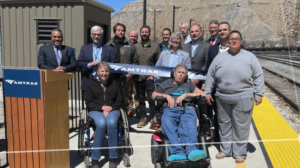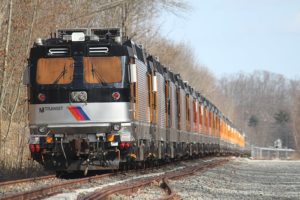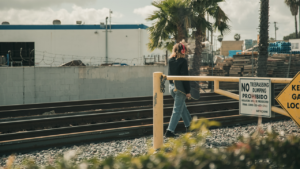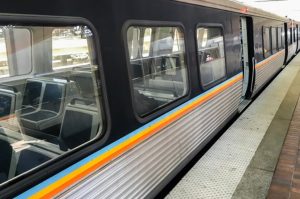Two Washington Metro (WMATA) trains collide after operator fails to heed a stop order
Written by David C. Lester, Editor-in-Chief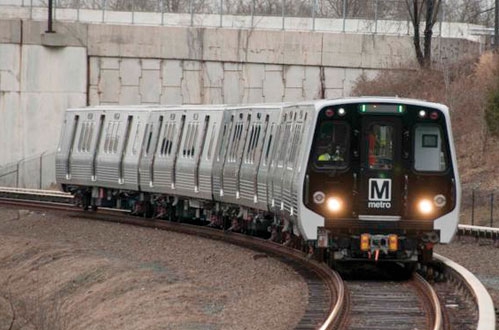
The Washington Post reports that a collision of two WMATA trains occurred on Monday, October 7 at 12:54 a.m. The collision happened outside the Farragut West station. Neither train had passengers aboard. The operator aboard each train received minor injuries, as this was a low-speed collision. Both trains had just completed extra service for a Washington Nationals’ baseball game, and were headed back to their yards when the accident occurred.
Just before the accident, both trains were stopped. Then, for an undetermined reason and without clearance, one operator moved their train forward until it hit the stopped train at about 11 mph. David Mayer, chief executive of the Washington Metrorail Safety Commission, said “There’s no indication that there was that permission. We know the train moved, and we know the train had a zero-speed command. At this moment, it isn’t productive to get into the head of the operator or to understand this particular train operator.”
While the only real impact of this accident was two slightly injured operators and some damage to the rail cars that collided, officials wonder how something like this could happen, and what this could mean regarding the potential for future accidents.
The Federal Transit Administration has Metro under a “Corrective Action Plan,” part of which is to stop trains from moving without authorization. However, officials say that the plan has yet to be completed by Metro. The Washington Metropolitan Transit Authority “has not fully implemented sufficient protections against the unauthorized movement of trains with zero speed commands.”
Officials will continue to investigate the accident, and work with Metro to make recommendations and refine procedures to address this type of accident.
Source: The Washington Post. washingtonpost.com
For the latest news, go to rtands.com.

